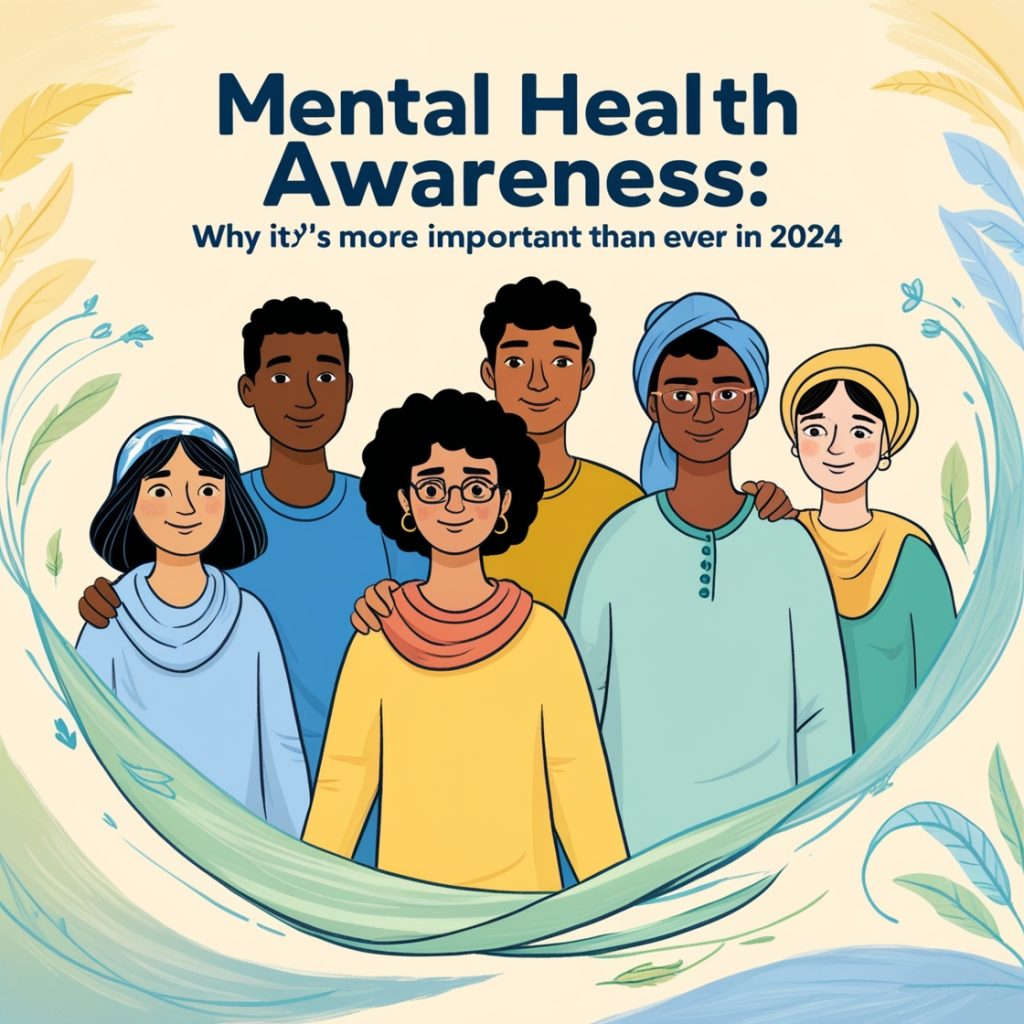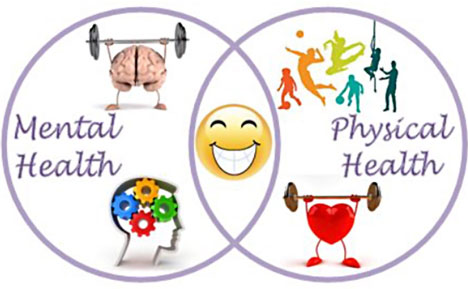Mental Health Awareness: Why It’s More Important Than Ever in 2024

Mental Health Awareness: Why It’s More Important Than Ever in 2024. In 2024, the conversation around mental health is more vibrant and urgent than ever. As the world continues to change rapidly, from technological advancements to evolving societal norms, the importance of mental health awareness has never been clearer. With increasing pressures on mental well-being, it’s crucial to understand why mental health matters so much today and how we can collectively support and nurture it.
The Growing Importance of Mental Health Awareness
Mental health encompasses our emotional, psychological, and social well-being. It affects how we think, feel, and act, and influences how we handle stress, relate to others, and make decisions. As we navigate the complexities of modern life, the need to prioritize mental health becomes increasingly critical.
1. Rising Rates of Mental Health Issues

Recent years have seen a concerning rise in mental health issues across various demographics. Factors such as the stress of navigating a post-pandemic world, economic uncertainties, and the pressures of digital life contribute to this trend. Conditions like anxiety, depression, and burnout are becoming more prevalent, affecting millions globally. Recognizing and addressing these issues is essential to prevent them from escalating and to ensure timely support and treatment.
2. The Impact of Social Media and Digital Life

In 2024, social media and digital technology are deeply embedded in our daily lives. While these tools offer incredible benefits, they also pose challenges for mental health. Constant connectivity can lead to information overload, social comparison, and cyberbullying. The pressure to maintain a perfect online persona can impact self-esteem and contribute to anxiety and depression. Mental health awareness helps us understand these challenges and develop strategies to mitigate their effects.
3. Mental Health and Physical Health Connection

The connection between mental and physical health is well-established. Poor mental health can lead to physical issues such as chronic pain, fatigue, and weakened immune function. Conversely, physical health problems can exacerbate mental health issues. By fostering mental health awareness, we can encourage a holistic approach to health that integrates mental and physical well-being, leading to better overall health outcomes.
Promoting Mental Health Awareness
Creating a supportive environment for mental health starts with awareness and education. Here’s why and how we can enhance mental health awareness in our communities:
1. Reducing Stigma
One of the biggest barriers to mental health care is stigma. Negative attitudes and misconceptions about mental health can prevent individuals from seeking help. By promoting mental health awareness, we can challenge stereotypes, normalize conversations about mental health, and create a culture where seeking help is seen as a strength, not a weakness. Education and open dialogue play crucial roles in reducing stigma and encouraging more people to access the support they need. Read More (Health Crisis in Canada in 2024: Bacterial Meningitis Outbreak Hits Canadian Communities)
2. Educating on Warning Signs and Symptoms
Awareness involves recognizing the warning signs and symptoms of mental health issues. Educating people about common mental health conditions, their symptoms, and when to seek help is vital. This knowledge empowers individuals to identify problems early, seek appropriate support, and avoid the escalation of mental health issues. It also equips loved ones to provide support and encourage those struggling to seek help.
3. Encouraging Healthy Coping Mechanisms
Mental health awareness also includes promoting healthy coping strategies. Stress management techniques such as mindfulness, exercise, and healthy eating are essential for maintaining mental well-being. Encouraging practices like regular physical activity, adequate sleep, and balanced nutrition can help individuals manage stress and improve their mental health. Providing resources and support for these practices contributes to overall mental wellness. Read More (Adventure Fitness Challenges 2024: Conquering Peaks and Personal Goals)
The Role of Community and Support Systems
Building a supportive network is crucial for mental health. Communities, workplaces, and schools all play a role in fostering mental health awareness and creating supportive environments. Here’s how these settings can contribute:
1. Community Support

Communities can provide resources such as mental health workshops, support groups, and educational programs. Community leaders and organizations can advocate for mental health initiatives and create safe spaces for discussion. By fostering a supportive community environment, individuals are more likely to feel understood and less isolated. Read More (Top 10 Healthy Snacks for a Quick Energy Boost).
2. Workplace Wellness

Workplaces are increasingly recognizing the importance of mental health. Employers can implement wellness programs, offer mental health days, and create supportive environments that prioritize employee well-being. Encouraging a healthy work-life balance and providing access to mental health resources can significantly impact employees’ mental health and job satisfaction.
3. School-Based Programs

Schools play a crucial role in early mental health education. Incorporating mental health awareness into curricula, providing counseling services, and creating supportive school environments can help students manage stress and develop resilience. Educators and school staff can be trained to recognize and address mental health issues, ensuring that students receive the support they need.
Conclusion article Mental Health Awareness: Why It’s More Important Than Ever in 2024
As we move further into 2024, mental health awareness will continue to be a vital aspect of overall well-being. By reducing stigma, educating on mental health issues, promoting healthy coping strategies, and fostering supportive environments, we can make significant strides in improving mental health outcomes.
Mental health is an integral part of our overall health and quality of life. Prioritizing mental health awareness ensures that individuals receive the support they need, leading to healthier, happier communities. As we navigate the complexities of modern life, embracing mental health awareness is more important than ever for fostering a compassionate and resilient society.
In conclusion, mental health awareness in 2024 is about more than just understanding mental health issues; it’s about creating a culture of support and resilience. By addressing the challenges and embracing the opportunities to improve mental health, we can build a future where mental well-being is valued and prioritized.






1 thought on “Mental Health Awareness: Why It’s More Important Than Ever in 2024”
Comments are closed.